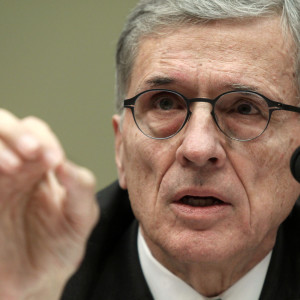As the Federal Communications Commission prepares to vote on new rules aimed at increasing competition in the business market for high-capacity internet later this week, economists on both sides of the issue are arguing whether the current market is costing consumers billions in overcharges.
According to a study by the Consumer Federation of America (CFA), an association of non-profit consumer organizations, sparse competition and anticompetitive practices by the biggest telecommunications providers in the U.S. have cost consumers $150 billion since 2010.
“The anticompetitive, anti-consumer conduct of the large incumbent telephone providers is a shocking reminder of the immense market power held by these organizations and the consequences this kind of concentration can have on both the individual consumer and the American economy,” CFA research director Mark Cooper wrote in the study, “The Special Problem of Special Access.”
The special access market is made up of incumbent local exchange carriers (ILECs) — legacy providers like AT&T and Verizon which inherited large swaths of their copper-based network infrastructure from Bell, and competitive local exchange carriers — small providers like Sprint and Windstream.
To boost competition the FCC mandates ILECs lease business-dedicated lines to provide high-capacity broadband to schools, hospitals, libraries, public safety institutions, ATM networks and businesses. Though market share has increased in recent years, meeting FCC triggers resulting in deregulation of certain providers including AT&T in 2009, so have complaints by CLECs like Sprint about anticompetitive leasing rates and so-called “lock-up” contracts resulting in overcharges.
Smaller providers say such contracts often force them into strict terms of service including overcharges for failing to use their maximum network allowance, charge anticompetitive rates and make it harder for CLECs to transition onto newer Internet protocol-based fiber networks.
Using a commonly accepted index to gauge market share alongside guidelines set down by the Federal Trade Commission and Department of Justice, CFA found the special access market is at least three times the threshold of “highly concentrated.”
The CFA says those charges totaled $75 billion over the last five years, and estimates “the indirect macroeconomic loss to American consumers doubles that damage to a total in excess of $150 billion since 2010.”
“The unreasonable costs that special access impose on businesses are rolled into the costs of the goods and services they sell. They don’t disappear, and the tooth fairy does not pay them,” Cooper said. “Consumers pay them in the price of the products and services they buy.”
Cooper concludes slashing special access pricing by 50 percent would add $30 billion annually to the economy, totaling in $150 billion in the next five years.
“CFA’s claim is based on a method that is internally inconsistent, economically unsound, and computationally flimsy,” George Ford, chief economist at the Washington, D.C.-based regulatory think-tank Phoenix Center said in his own study.
According to Ford, the CFA study, based heavily on an earlier study comprised of data from 2003, makes the broad assumption that an equal level of demand would accompany a price decrease across the special access market, instead of recognizing the small effect the price cut would have lower prices already present in the market.
“A serious problem with the [CFA study] is that it views special access services as if they were homogenous goods sold in a centralized market,” Ford wrote. “Yet, according to the FCC and those calling for increased regulation of special access services, the market for special access services is the individual ‘customer’ or ‘location.’”
“If true, then the calculations made by the [study] are invalid,” he added.
The CFA based its number in part on the assumption the demand for circuits in the special access market would triple with a 50 percent price cut, a prediction Ford dubbed “silly.”
“The fact of the matter is that we don’t have any idea what the demand curve for special access will look like in the region of a 50 percent price cut,” Ford wrote. “It’s pure speculation.”
The CFA study has been widely cited as a defense of the new rules under consideration at the FCC, announced by Chairman Tom Wheeler earlier this month. A separate study by the telecom industry argues potential regulations could cost the U.S. economy billions of dollars, thousands of jobs and miles of high-speed fiber deployed.
On Thursday the FCC is scheduled to vote on a further notice of proposed rulemaking, which if adopted, will open a window to hear comment on the actions the agency might take to increase competition in the special access market.

